When visiting Nikko, Japan, a stay at a Japanese Ryokan is a must. A Ryokan is a traditional Japanese hotel that takes you back in time.
We had the privilege of staying at the picturesque Kanaya Kinugawa Hotel and Onsen located on the Kinugawa River.
It was our final two nights in the Nikko area and what a way to finish it off!
Staying at one of Japan’s luxurious ryokans is worth the splurge for a night or two, with hot spring baths, private meals, and incredible guest rooms.
Table of Contents
What to expect in this Ryokan article
What is a Japanese Ryokan?
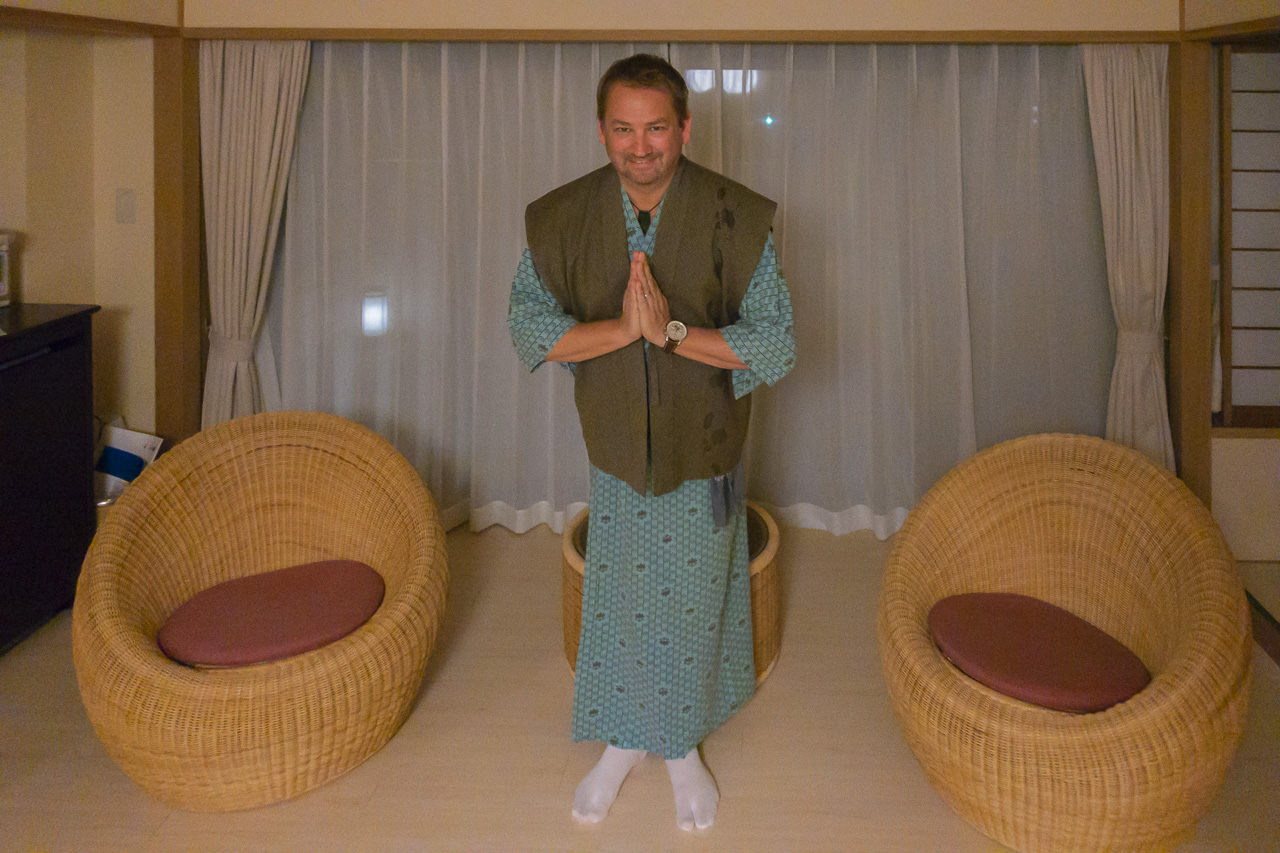
A Ryokan is a traditional Japanese hotel. Rooms typically feature sunken floors for in-room dining that are padded with tatami mats.
In a Ryokan guests sleep on futons that are set up by staff while you are out eating your meals.
But the more luxurious Ryokans have both futons and beds. We were lucky enough to be able to stay in a basic Ryokan and a luxury ryokan.
Both beds and duvets are comfortable, complete with the fluffies duvets you’ve ever seen.
Sliding doors that look like rice paper screens separate rooms and some rooms have their own private gardens.
A low table and zabuton floor cushions are front and center for use and drinking tea
A Ryokan is usually attached to an Onsen (natural hot spring) that flows into the grounds offering public baths or private pools for guests to use.
Finally, Yukatas (summer kimonos) are complimentary for wearing at your leisure.
Traditional Ryokan in Nikko
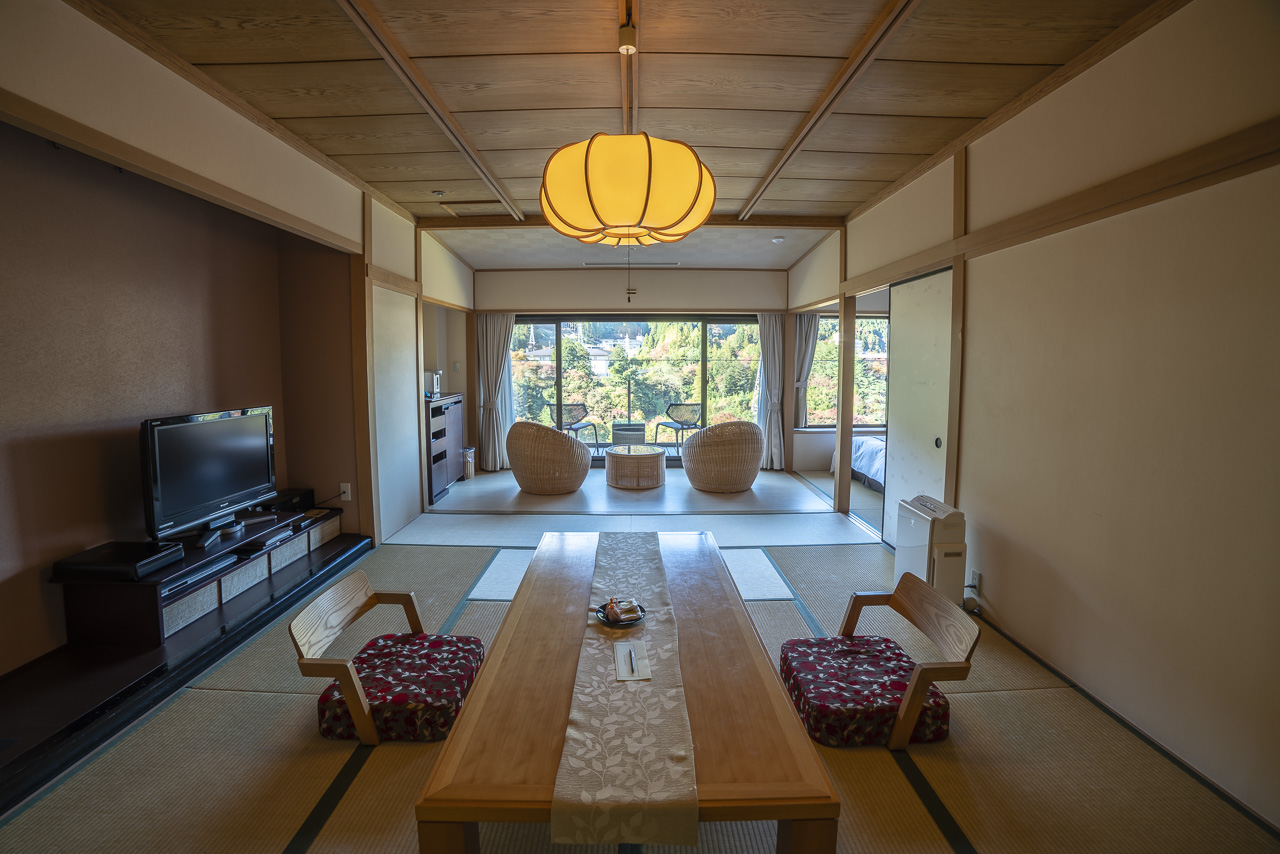
Nikko is as traditional as it gets for places to visit in Japan. Named a UNESCO World Heritage Site, it is one of Japan’s most sacred regions.
For centuries it has been a mountain centre of worship for Shinto and Buddhist religions and Nikko saw the first Shogun of Japan.
Today it is an important pilgrimage to see the Toshogu Shrine that honours the founder of the shogunate, Tokugawa Ieyasu.
If you are going to make the trip from Tokyo to Nikko, it is worth staying in these traditional Japanese Inns, known as a Japanese Ryokan.
It’s an experience you’ll never forget.
Rules of a Japanese Ryokan
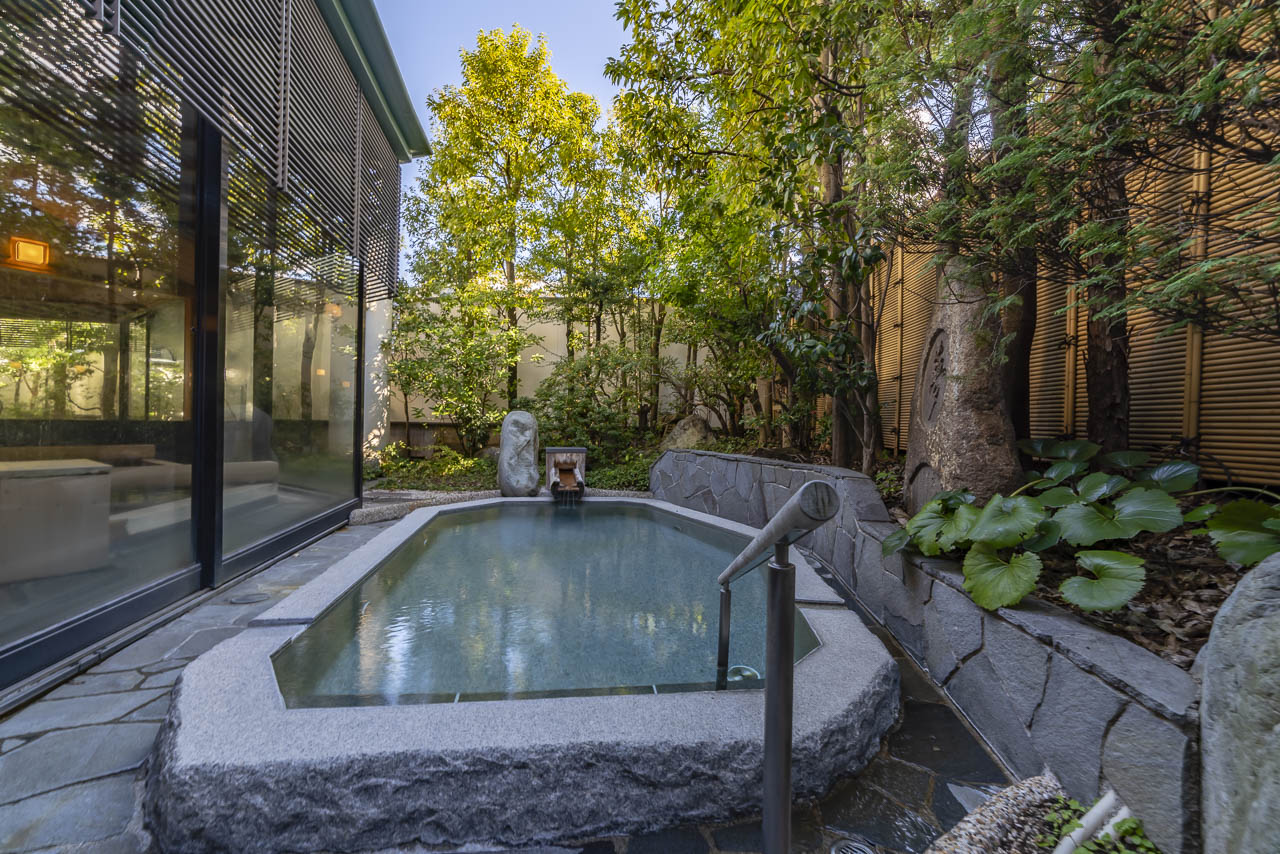
- Shoes are never worn in your room.
- When entering your room, take off your shoes at the front door and use the slippers that are provided.
- There are different slippers for different occasions.
- You will be provided slippers that you can wear around the hotel – to dinner, to the spa and to the lobby.
- Slippers that you wear in your room only.
- And there are even slippers that you change into when entering the bathroom or toilet.
- Try your best to change into the appropriate slipper for each activity.
- Dinners are scheduled and you must let the staff know in advance what time you are eating as meals are elaborate and take a lot of preparation.
- Yukatas (light kimonos) are provided for all guests and you can wear them if you choose. We recommend wearing them because everyone does and you will look odd going to dinner in regular clothing.
- If you have any questions or are confused about anything, just ask. The Japanese are the most polite and courteous people in the world and are always happy to help.
Onsen – Public Baths
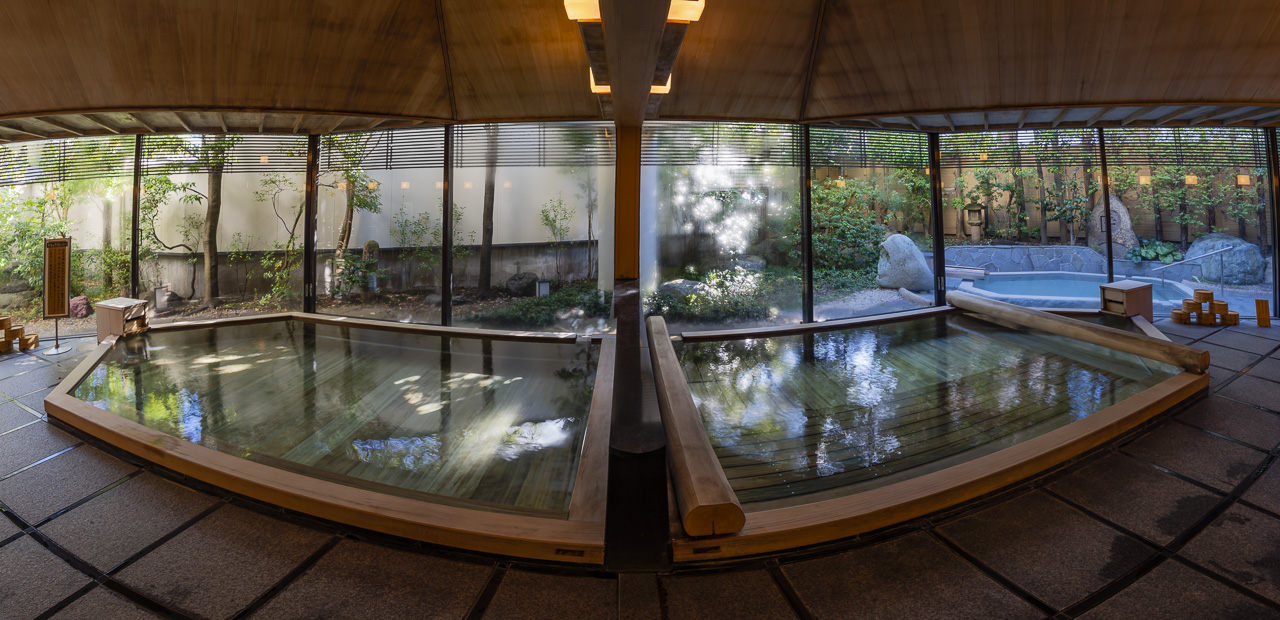
But dinner isn’t the main attraction that brings people to a Ryokan, it is the hot springs that make the experience unique.
Ryokans are usually located next to natural hot springs and the Kinugawa Onsen is a famous hot spring that is only two hours north of Tokyo.
Like many things in the country, there are rituals and traditions that make visiting a ryokan unique.
Public baths are to be entered naked and they are separated by sex. Men and women have their own experiences.
The Hotel Kanaya Kinugawqa has two very beautiful spa areas that they rotate every day so that men and women can experience both of them.
Dave and I had the opportunity to go in to film and shoot the baths while they were changing them over.
Rules of an Onsen – How to Take a Japanese Bath
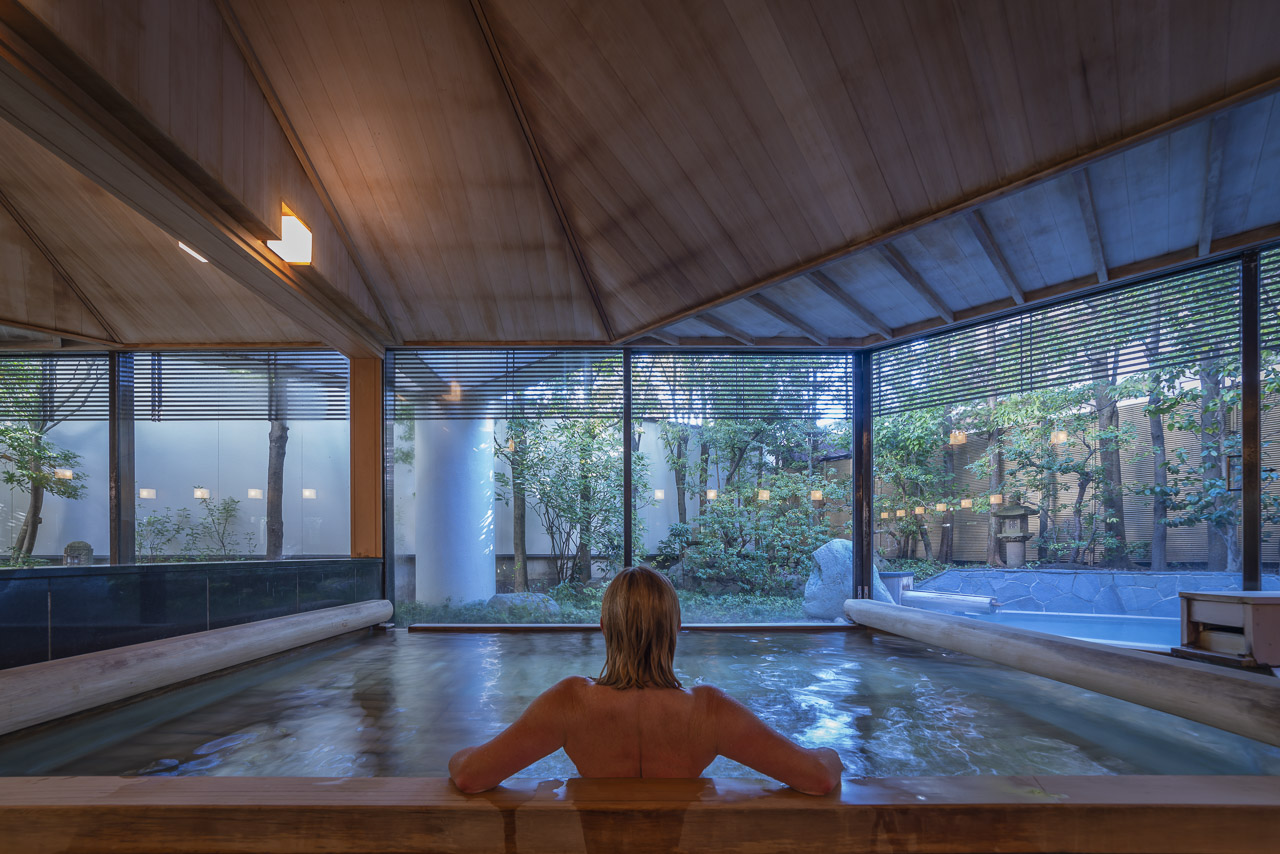
When visiting an onsen, you must follow the rules
Before going into the hot pools, strip down from your Yukata to your “birthday suit” and then wash with the water, shower or bucket provided.
Our hotel had shower stations set up beside the baths complete with a stool, bucket, soap, shampoo and even loofahs.
Clean yourself thoroughly before going in the bath.
Towels and robes are provided.
Note: many public onsens require you to bring your own soap, towels and robes but the high end ryokans and hotels like the Kinugawa hotel offer everything you need.
There are lockers to put your clothes and valuables in and this onsen had many lounge chairs and seating areas.
We were treated with saunas and steam rooms too!
A Japanese Onsen is used for quiet contemplation and relaxation so be as quiet as possible and sit back and relax.
Japanese Toilets
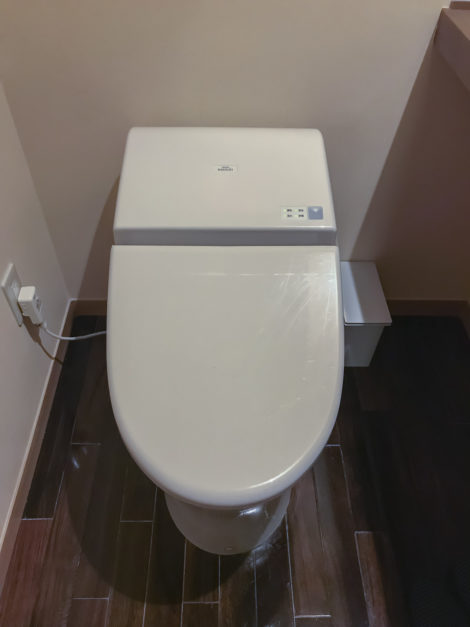
Toilets in Japan are divine, and our bathroom at the Kanaya Kinugawa was up there as the best.
Japanese toilets are smart toilets that do everything from self-clean and sanitize to cleaning up your bottom with hands-free state of the art technology.
We checked out our toilet by skimming through the menu of drawings and Japanese characters that we could only understand through trial and error.
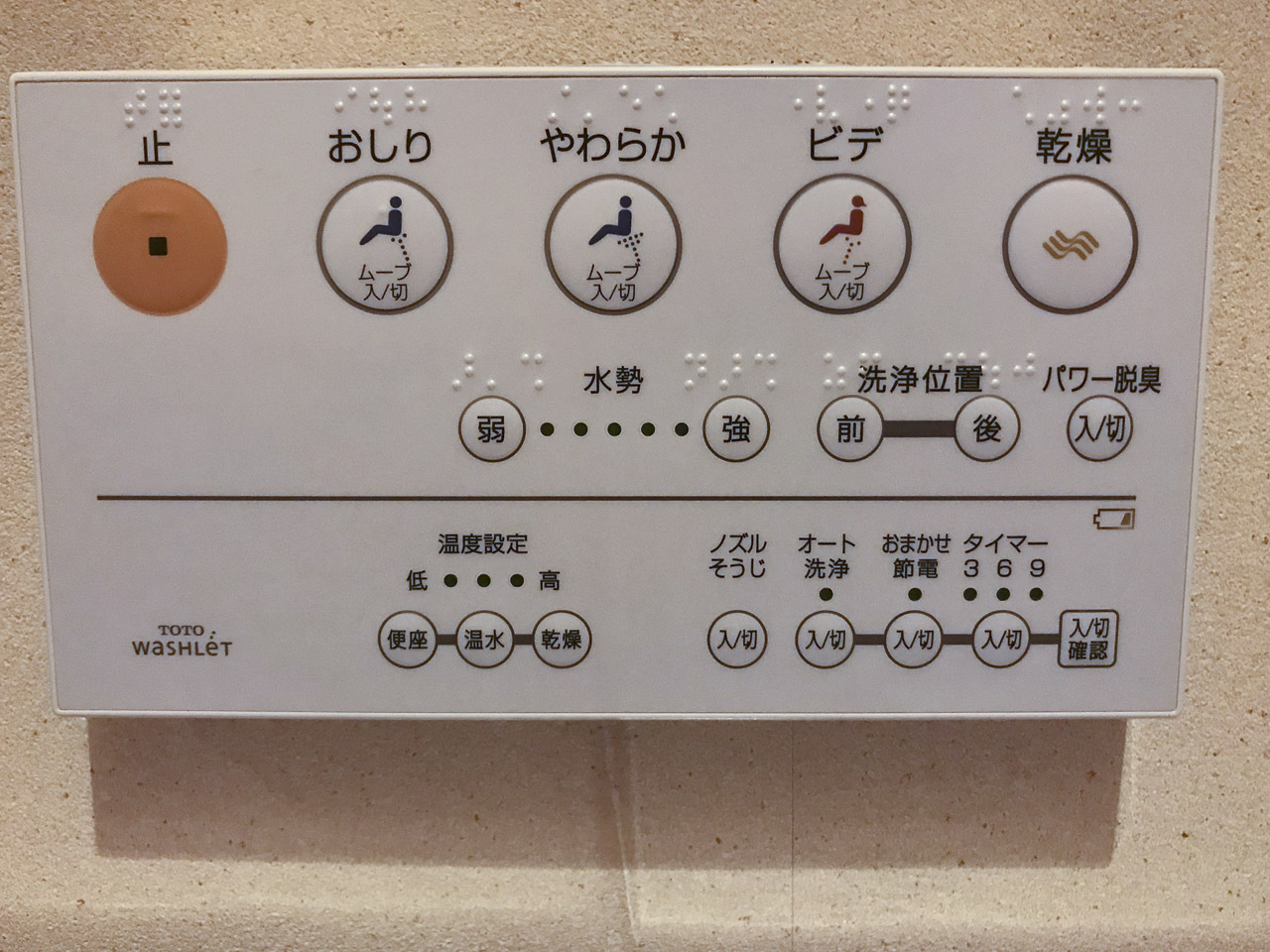
The seats are heated and once you finish your business, you can choose to wash either end of your bottom while pressing a button to aim the water at just the right spot.
We played around with pressure, position and different controls before finishing up with the butt dryer to make us feel fresh and complete.
You don’t even have to use toilet paper with these machines. I don’t think Dave has ever looked forward to his morning business as much as he did in Japan!
The Kanaya Kinugawa Hotel and Onsen
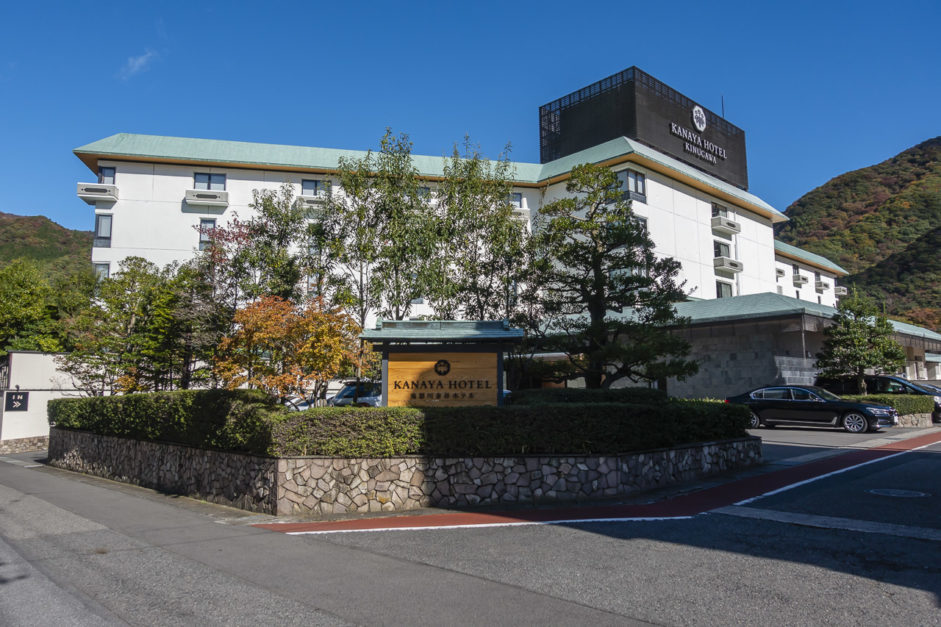
The Kanaya Kinugawa hotel is a modernized ryokan with all the luxurious amenities you can imagine.
Lucky for us, we had a guide with us to walk us through the rules of the Ryokan and ou guide Yoshi reminded us to take off our shoes before entering the room and change into the slippers provided.
After a quick tour of the room from the hotel staff, we let out a giddy cry of delight.
We were staying in a traditional Japanese Inn!
Our first stop was the toilet. Japan is the only place on earth that one can get excited about the toilets.
Traditional Japanese Hotel Room
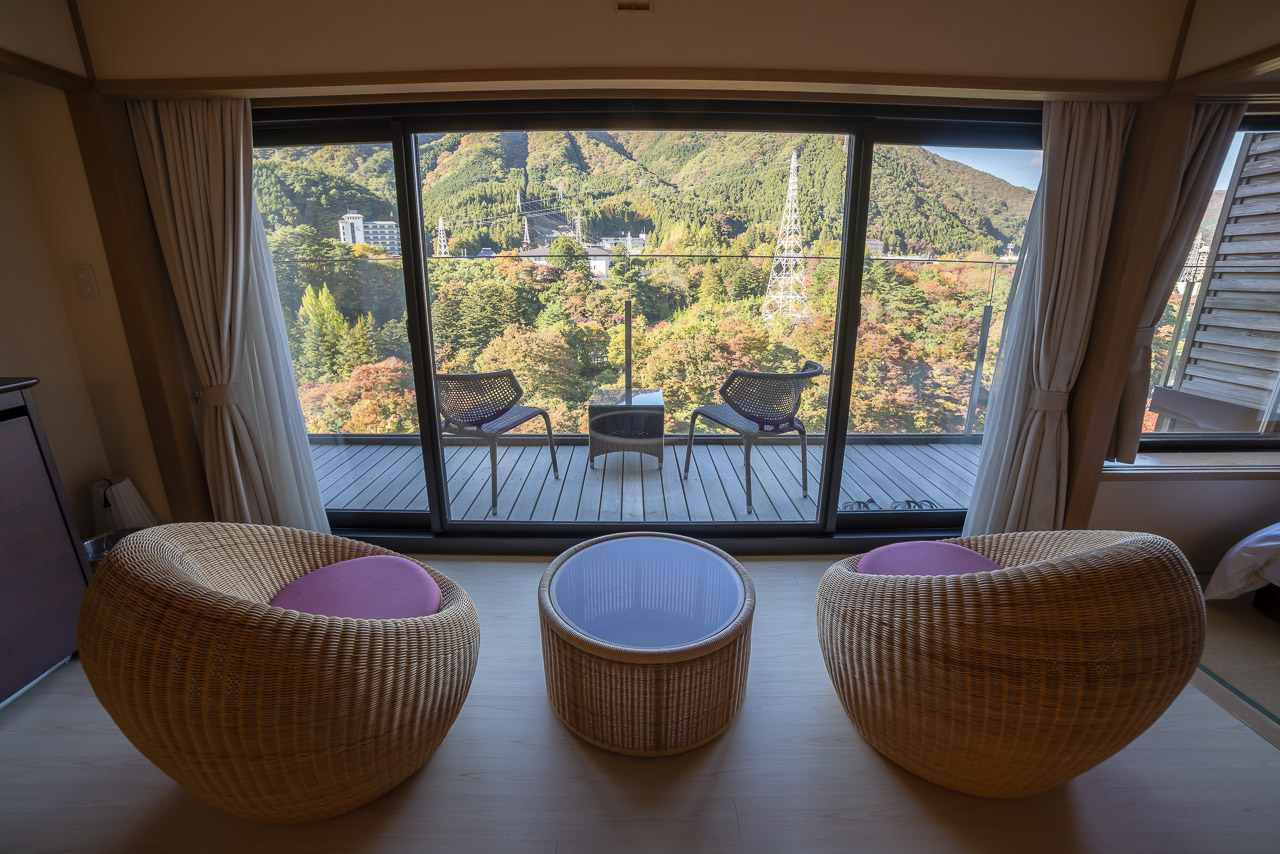
Our room had the choice of sleeping on the tatami mats on the floor or sleeping on our beds.
We did a tatami experience the night before at another ryokan, so we decided to stick with beds this time around.
But you must sleep on futons at least once.
When you go for dinner, the staff comes into your room and moves the low table and cushions aside to make up your beds.
I don’t think I have ever experienced such fluffy duvets and if I had more room in my luggage, I would have brought some to take home with me!
It is a very comfortable sleep and many elderly Japanese still sleep on futons to this day.
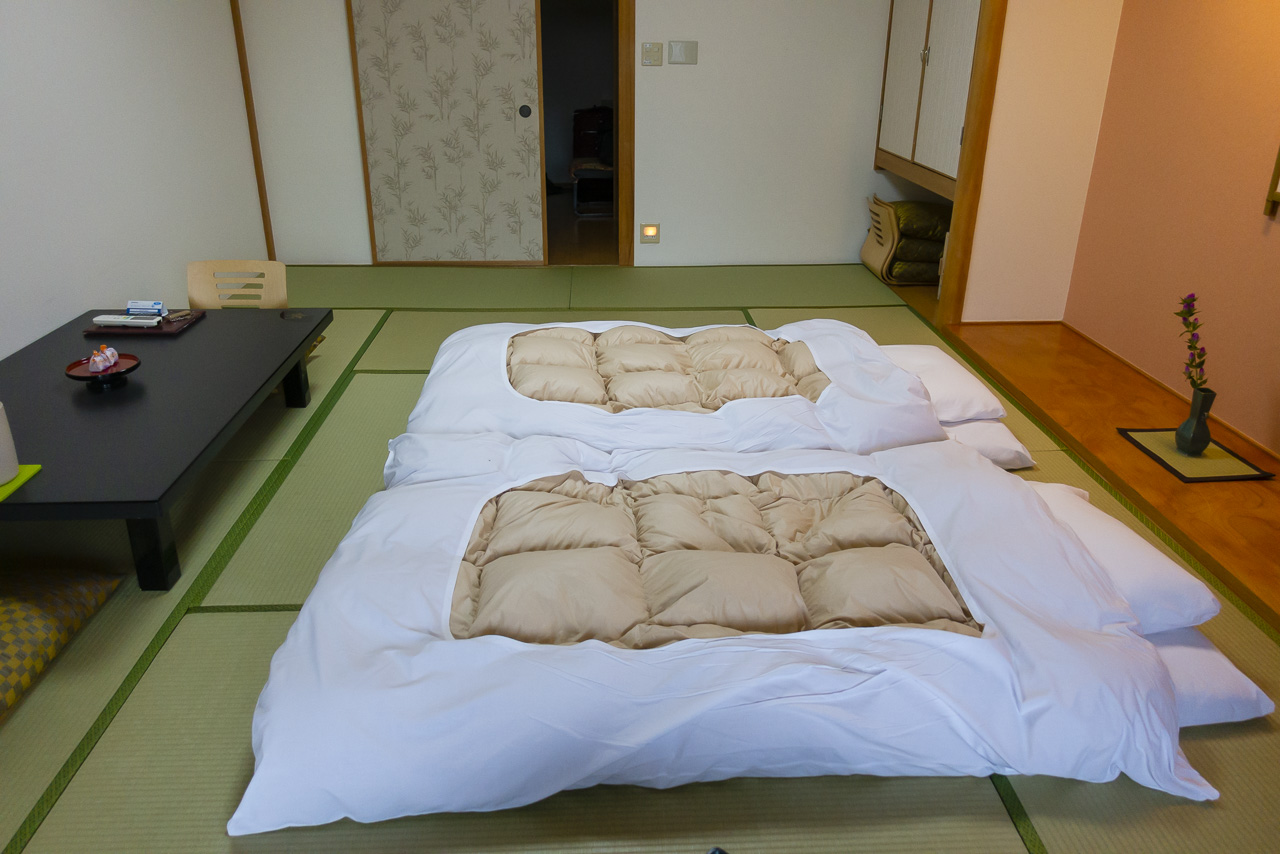
Our room was quite luxurious with a tatami area, a sitting area, a separate bedroom with two double beds, plus a separate shower and washroom from the toilet.
We even had a bath tub for our own private bathing. But why do that when you can go to the communal public baths that are divine. (you’ll be reading about this further down the article)
Hot tea is provided and we made a fresh brew as we sat on our stools looking out from the balcony at the beautiful hills of Nikko National Park.
Unlike western hotels where a simple kettle is offered. Here they have a hot pot that is temperature-controlled giving you instant hot water whenever you want it.
We were even given a smart tablet for us around the hotel. I honestly didn’t ever want to leave the room!
Yukatas
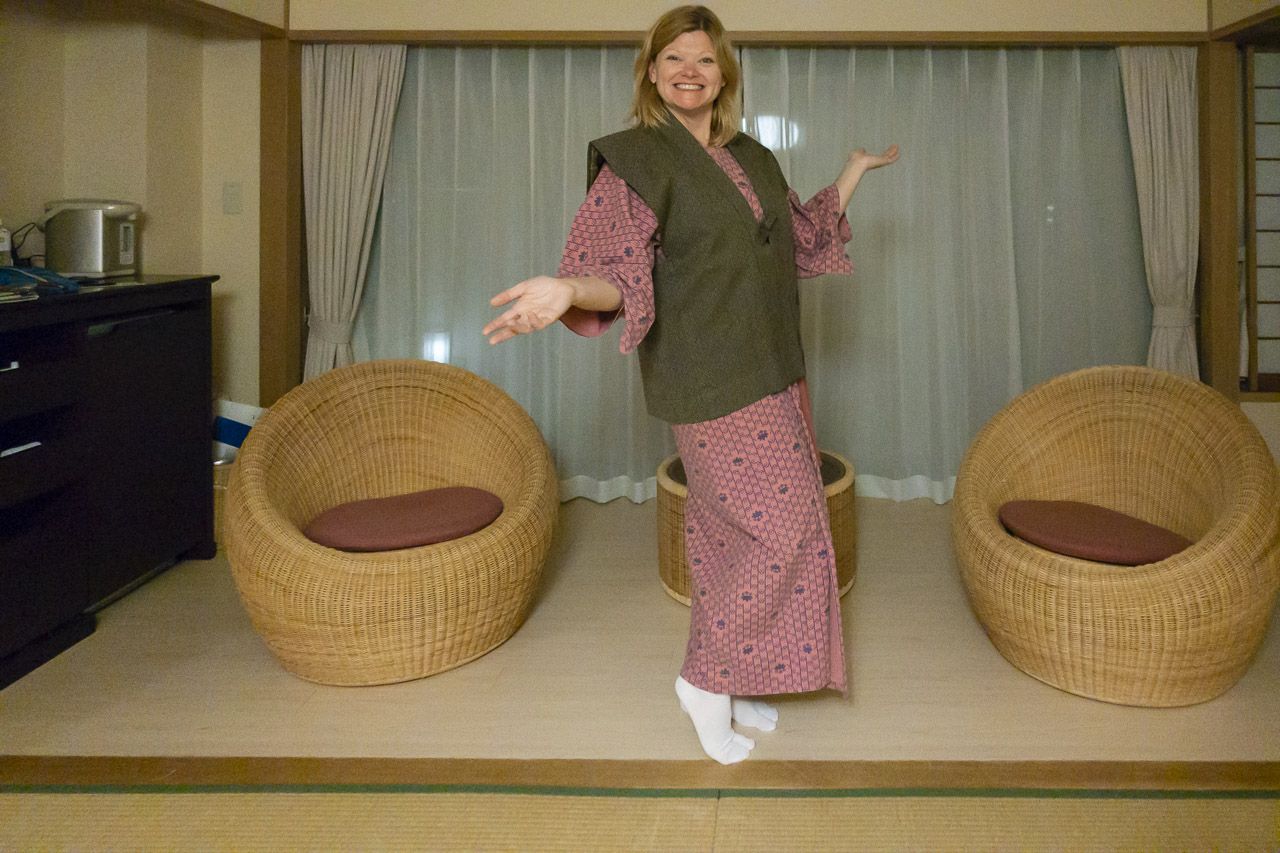
One of the first things you do when entering a Ryokan is to change into the Yukatas provided.
Yukatas are lightweight kimonos that you wear around the hotel.
You wear them to dinner, to the public baths and in the bar. In essence, anytime you go out in public areas, you wear the Yukata.
How to Wear a Yukata
When wearing a Yukata you don’t wear anything but underwear under the lightweight
When putting on the Yukata, bring the right side of the robe over to your left and then fold the left side over the right.
Fasten it with the sash provided and tie it on the left-hand side. Women can also tie it at the back in a nice bow.
The hotel also offers white socks with a slot for the big toe to be able to wear the slippers (flip-flop or thong type) provided.
When the robe is on you have the option of wearing the outer vest or jacket to keep you warm. We stayed in the autumn, so it was a nice addition to our wardrobe.
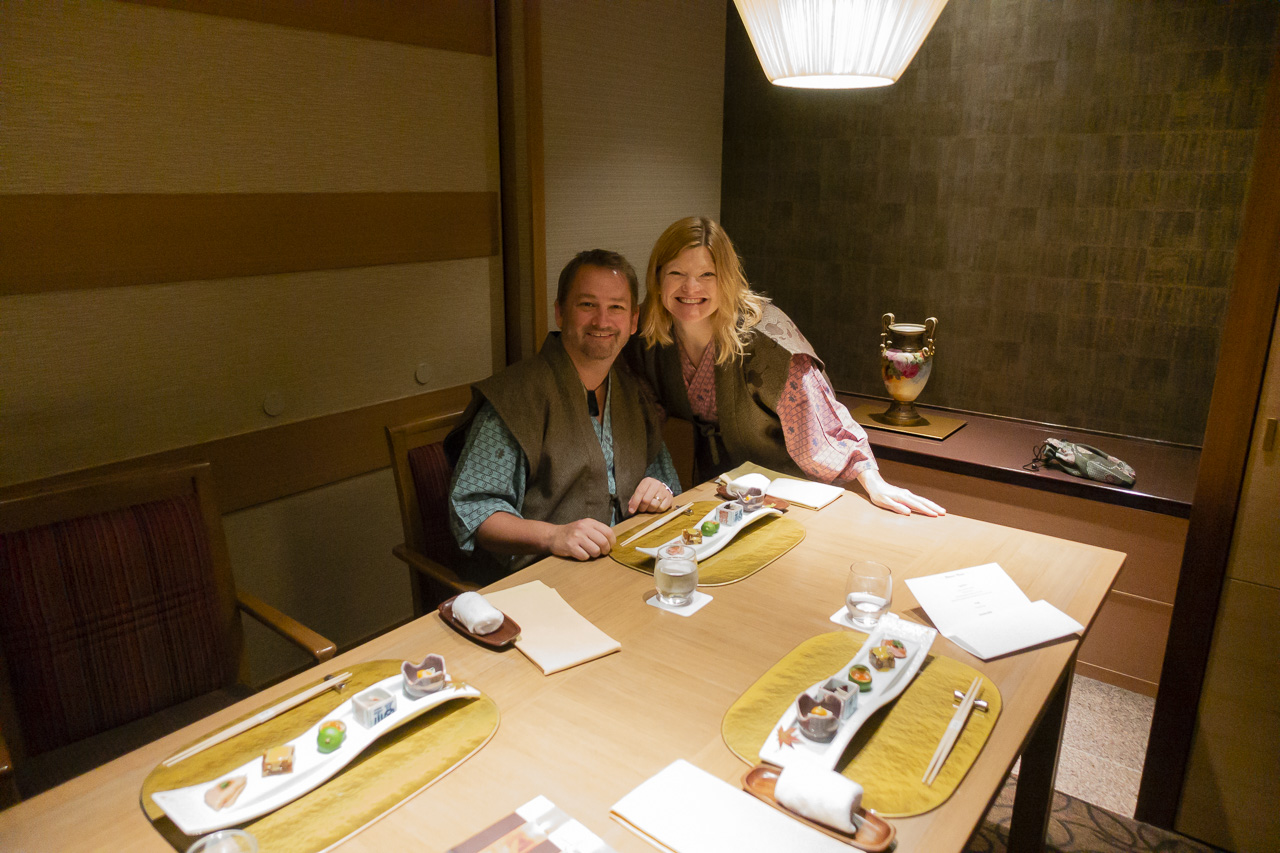
One final thing the hotel offers is a silk pouch to carry your cell phone, keys and anything else that you want to carry to dinner.
They really think of everything!
Kaiseki Dinner at a Japanese Ryokan
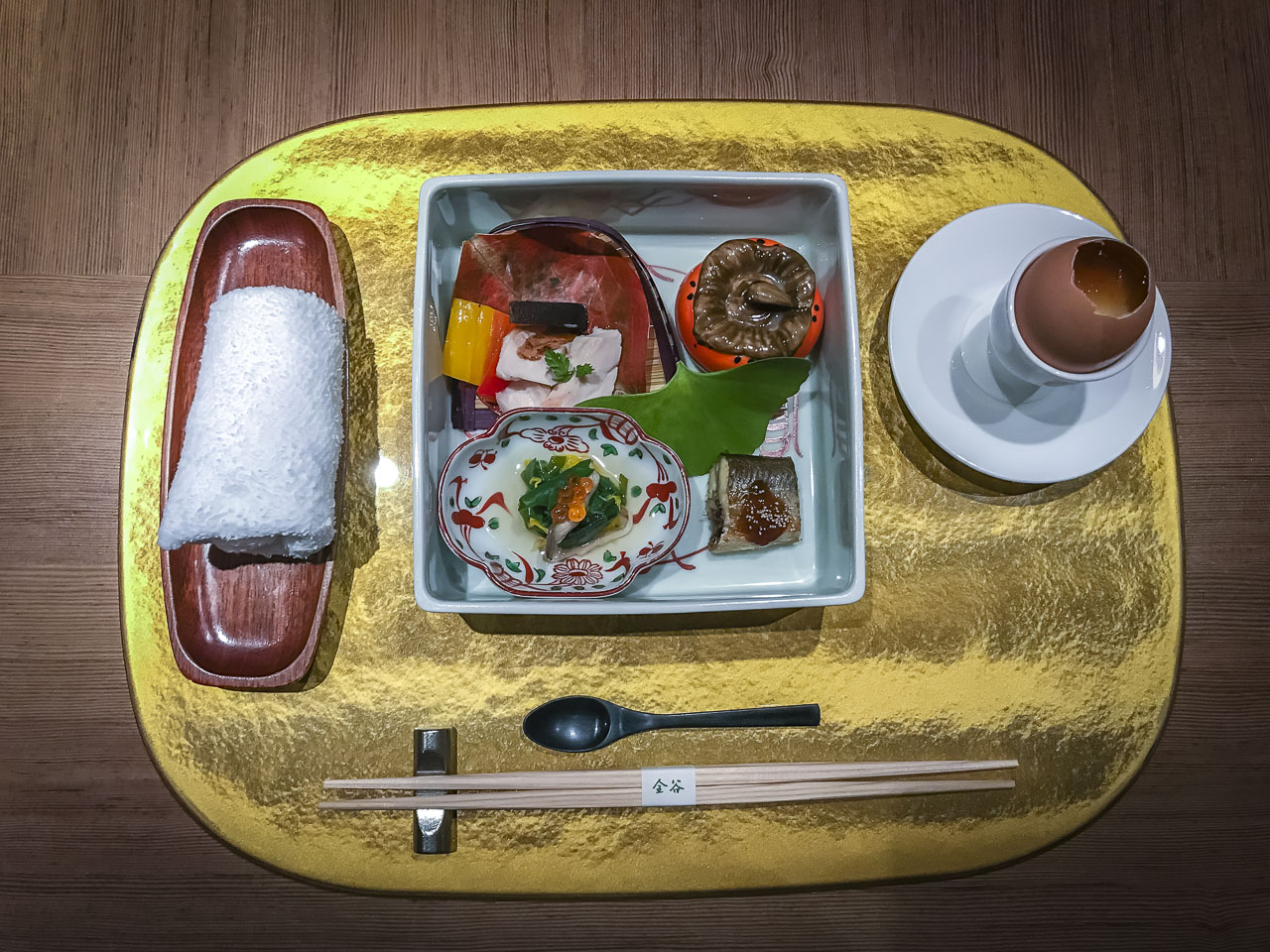
Now that we are dressed the part, it is time to take in the main event of staying at a traditional Japanese Ryokan – the Kaiseki Dinner.
Dave and I didn’t realize that dinners were such a large part of the experience and were taken aback as to just how long meals lasted every night.
But when local Japanese stay at a Ryokan, they expect an extravagant dinner that lasts for about two hours.
You can choose to have meals served in your tatami room and we noticed that many guests chose this option.
When walking to the dining room, we saw many room service tables outside doorways in the hall.
Since we don’t speak Japanese and needed our guide to explain the meals we were eating, we had dinner each night in a private dining room with our guide Yoshi.
Yoshi explained each course and helped us decide when we should have saki with a dish, or beer, or when tea was appropriate.
The meals at the Kanaya Kinugawa are extraordinary.
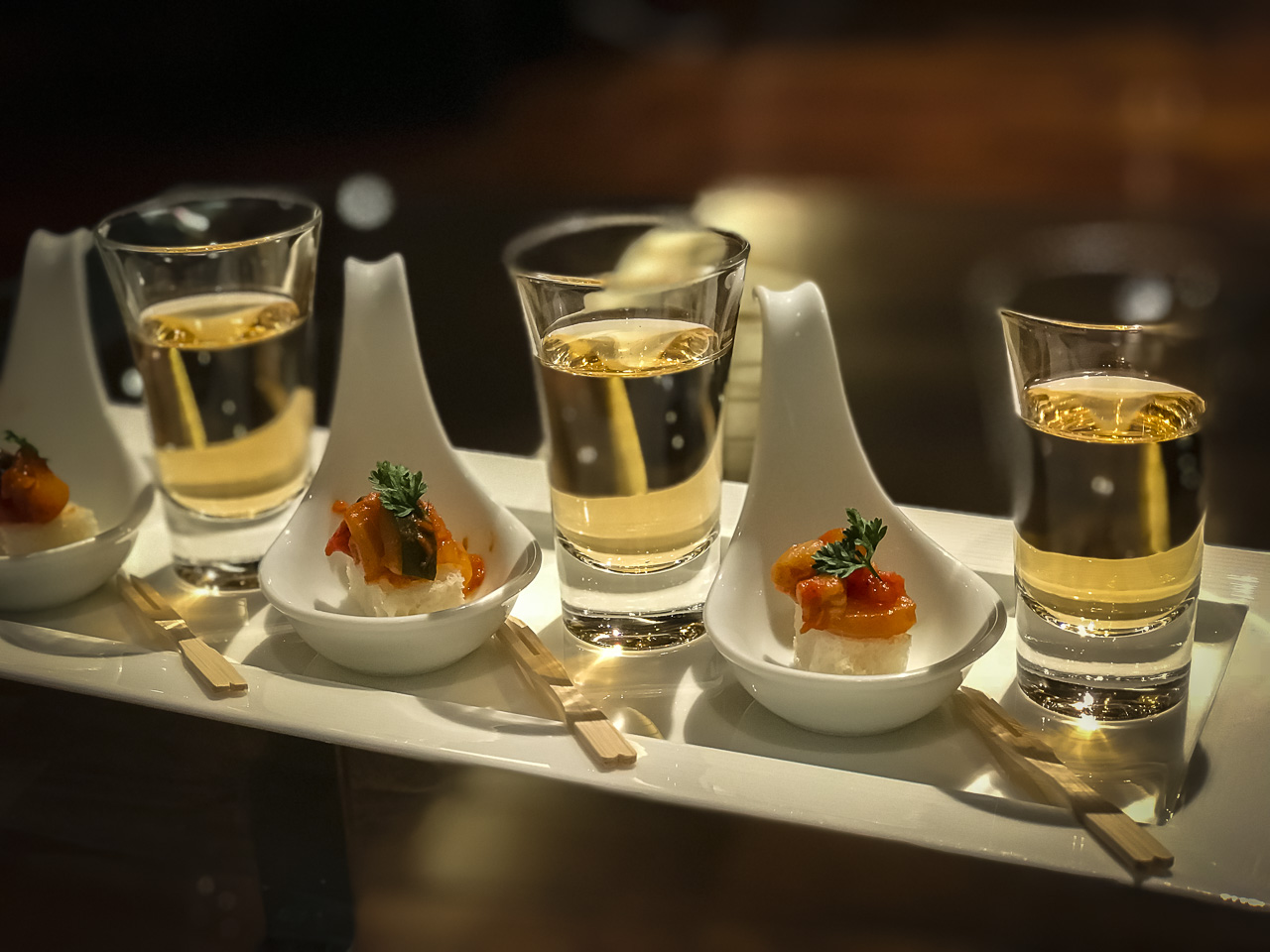
Chef John Kanagawa creates a fusion of French and Japanese cuisine creating a 10-course meal to perfection.
We did have a few dishes that took our Western palette some getting used to, but for the most part, each meal was a wonderful Japanese surprise.
We had dishes of soups and sushi, Wagyu beef and an assortment of fresh seasonal ingredients sourced locally from the Kinigawu River, Tochigi and throughout Japan.
The meal starts and ends in the lounge where we sit in tranquillity enjoying canapes and aperitifs before the meal.
Two hours later after finishing our meal, we go back to the lounge where a dessert cart filled with macaroons, chocolate and treats to accompany our tea or coffee.
Dinner is truly a spectacle that should not be rushed!
Sitting in the lounge at night made me realize why people come to a Ryokan. It is truly a place to unwind and get away from it all.
Time for Bed – Pajamas Provided
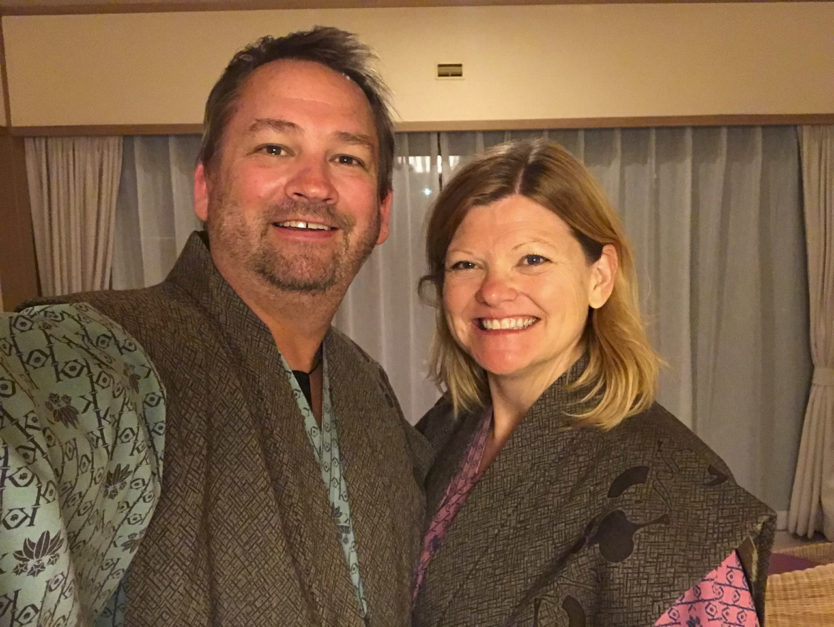
It was a full day of eating and relaxing in the hot baths and you will be ready for an incredible night’s sleep.
Many Ryokans offer pajamas to sleep in and the Kanaya Kinugawa was no exception.
Pajamas are not to be worn in public, they are strictly for use inside your public room.
They gave us a comfortable pair of pajamas for sleeping which we changed into before lumbering off to our dreamland in our cozy beds.
- Our trip to Nikko is brought to you by Tobu Japan Trip but all opinions are our own.
- Check out prices and availability at the Kanaya Kanugawa Hotel and Onsen on TripAdvisor.
Did you enjoy this article? Why not Pin it on Pinterest!
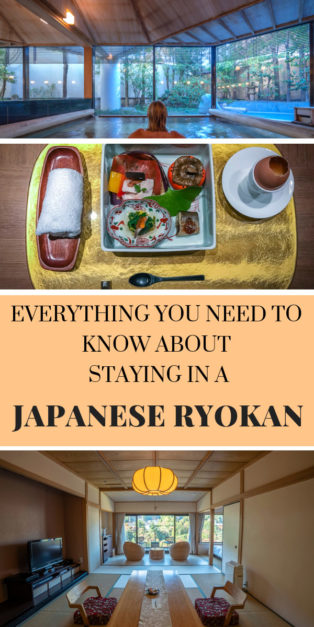
Read More:

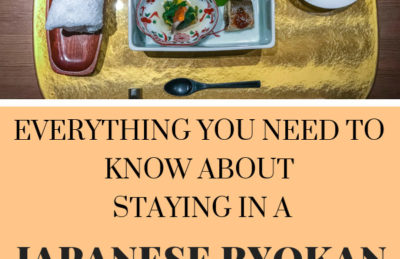
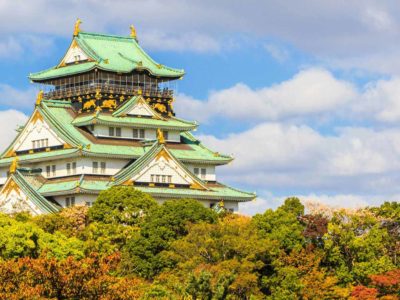
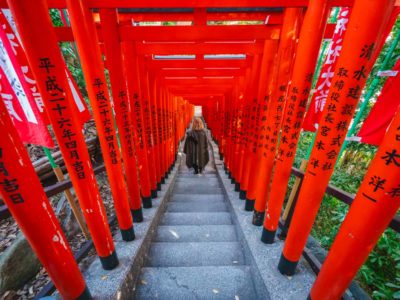
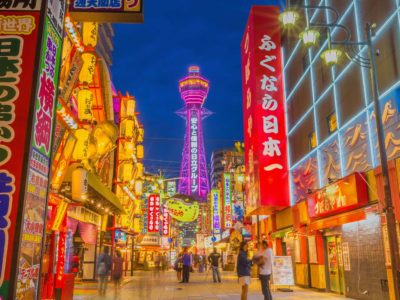
Thank you so much for sharing this great post. It is very interesting.